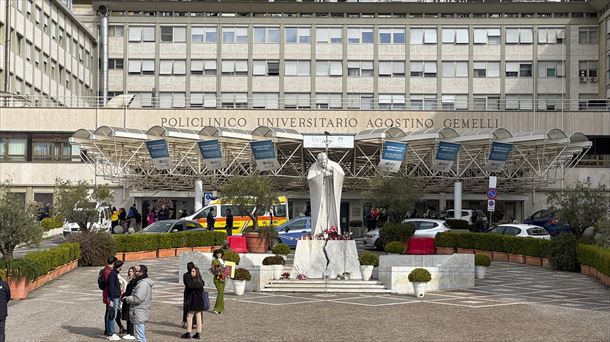Each EU country has its own labor rules and in many cases these differ greatly from each other. There are countries such as Germany that do not specify a maximum number of weekly hours. Others, like Greece, have just opened the door to two jobs and more jobs.
AAE | EITB MEDIUM
Working time regulations in Spain have been in force since 1983, the year the employee statute was amended. However, the agreement reached by PSOE and Sumar to form a coalition government also includes the shortening the working day to 37.5 hours at the beginning and 35 at the end of the cycle; all this without a salary reduction.
If ultimately approved, Spain will be one of the few EU countries to legislate for a working week of less than 40 hours. And just like with many other issues The countries of the European Union do not have common legislation about this issue.
The general details of EU regulations that the employer must guarantee that the average duration of the weekly working time of his staff no longer than 48 hours, including overtime. From now on, each country has its own legislation and in many cases they have nothing to do with each other.
The usual In most states this is the case the working week is 40 hours spread over a week of 5 days.
Anyway, For example, in countries such as Germany and Denmark, the standards do not specify the maximum number of hours that can be worked in a working week, but they prefer to leave this to the employment contracts or agreements between the company and the employee. Therefore, the maximum limit would in principle be the 48 hours set by the EU.
Other countries like Malta, Portugal or Romania however, set the working week at 40 hours The regulations indicate that this may be higher if overtime is added. For example, in the case of Croatia, it is specified that “the employee, if necessary, is obliged to work overtime at the request of the employer, but the total working day may not exceed 50 hours per week.”
The legislation of Belgium, for its part, stipulates that the working day may not exceed 8 hours per day or 38 hours per week. However, in specific cases it is possible to make exceptions and reach 50 hours per week.

It is also necessary to take into account the case of Greecewhich has just approved a labor reform that allows someone to work up to 78 hours per week. The Mitsotakis government’s new rule has kept the maximum working day at 48 hours in a six-day work week (45 hours in a five-day work week), but has opened the door to a second job and working longer hours.
The most progressive regulations can be found in Francewhere years ago a general maximum working day was established. 35 hours.
The actual working week
However, one thing is the maximum limit set by the various regulations, and another thing is the average working day in each country. Often, Agreements between companies and workers have shortened working weeks and it is common to work fewer hours than the established maximum.
Eurostat has published the data of the Actual weekly working hours 2022 from all European countries. The average is 37.5 hours, although there are significant differences. The spread is wide: from the average working day of 41 hours in Greece or 43.3 hours in Serbia, to 33.2 hours in the Netherlands. The average for Spain is 37.8 hours, according to Eurostat.
In addition to Greece and Serbia, the longest working hours are found in Poland (40.4 hours), Romania and Bulgaria (both 40.2 hours). On the other hand, in addition to the Netherlands, the shortest working hours were enjoyed in Germany (35.3 hours), Denmark (35.4) and Norway (35.5).
Source: EITB
I’m Wayne Wickman, a professional journalist and author for Today Times Live. My specialty is covering global news and current events, offering readers a unique perspective on the world’s most pressing issues. I’m passionate about storytelling and helping people stay informed on the goings-on of our planet.



